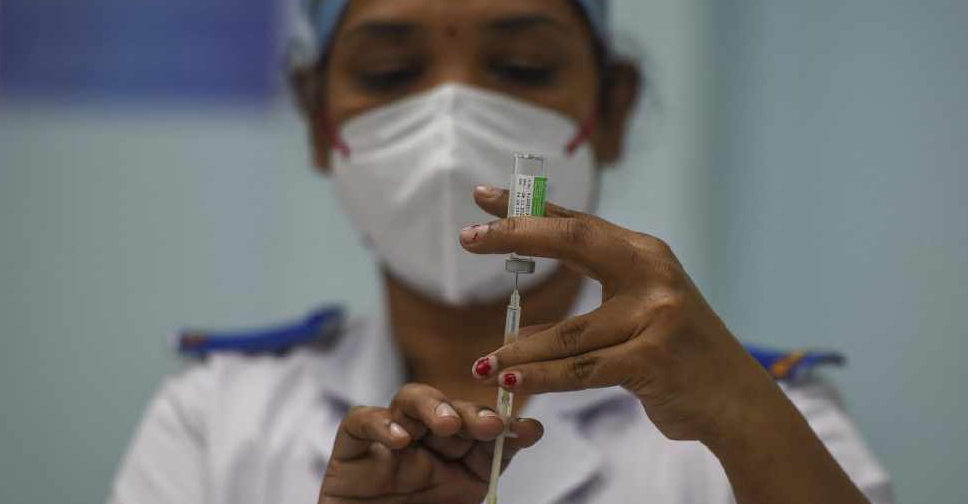
India's federal government has denied any shortage of coronavirus vaccine doses in a big northwestern state and said it was sending supplies around the country based on demand and consumption patterns.
The world's biggest vaccine maker has so far given 23 million doses to some 17 million people, with the pace picking up significantly since last week after more people were made eligible.
And as demand has risen in India after a slow start and initial hesitation among people, Rajasthan this week became the first state to publicly seek urgent replenishment of its stock.
The federal health ministry, however, said there was no shortage in Rajasthan or anywhere in the country. It said Rajasthan, a state of about 70 million people, still had 1.4 million doses left as of Monday night.
"The factual position is that there is no shortage of COVID-19 vaccine with the state at present," the ministry said in a statement.
"The central government is regularly monitoring availability of vaccine supply in all states and (federal territories), and providing the doses as per their requirement and consumption pattern."
India, which wants to inoculate 300 million of its 1.35 billion people by August, began its campaign in mid-January with the AstraZeneca shot and another developed at home by Bharat Biotech and a state institute.
It is donating or selling vaccines to more than three dozen countries, drawing some criticism for not expanding its own immunisation campaign further.
After the United States, India has reported the world's most coronavirus infections, which jumped by 15,388 on Tuesday to 11.24 million. Deaths rose by 77 - the lowest in many months - taking the total to 157,930.

 UK inquiry finds 'chilling' cover-up of infected blood scandal
UK inquiry finds 'chilling' cover-up of infected blood scandal
 Iranian President Raisi killed in helicopter accident, state media says
Iranian President Raisi killed in helicopter accident, state media says
 ICC prosecutor seeks arrest warrants for Israeli, Hamas leaders
ICC prosecutor seeks arrest warrants for Israeli, Hamas leaders
 Assange given permission to appeal against US extradition
Assange given permission to appeal against US extradition
 Israel intends to broaden Rafah sweep, Defence Minister tells US
Israel intends to broaden Rafah sweep, Defence Minister tells US




